Aluminum Marine Elbow with High Corrosion Resistance
Features
- High corrosion resistance compatible with seawater and brackish environments
- Lightweight compared to steel or bronze fittings, reducing overall vessel weight
- Good strength-to-weight ratio suitable for structural and fluid handling systems
- Excellent thermal and electrical conductivity where needed
- Precision forming and machining for leak-free connections
- Surface treatments available (anodizing, chromate conversion, epoxy coating) for enhanced durability
- Compatible with a wide range of marine piping materials using appropriate transition fittings or isolation measures
Typical Alloys & Chemical Composition
Aluminum marine elbows are commonly manufactured from marine-grade aluminum alloys such as 5083, 5086, 6061, or 6082 depending on the application (structural vs. pressure piping). The following table shows typical chemical composition limits (wt. %) for commonly used marine alloys.
| Element | 5083 (typical) | 5086 (typical) | 6061 (typical) | 6082 (typical) |
|---|---|---|---|---|
| Al | Balance | Balance | Balance | Balance |
| Si | 0.4 max | 0.4 max | 0.4–0.8 | 0.7–1.3 |
| Fe | 0.4 max | 0.4 max | 0.7 max | 0.5–1.0 |
| Cu | 0.1 max | 0.1 max | 0.15–0.4 | 0.0–0.1 |
| Mn | 0.4–1.0 | 0.45–1.2 | 0.15 max | 0.4–1.0 |
| Mg | 3.8–4.9 | 3.5–4.5 | 0.8–1.2 | 0.6–1.2 |
| Cr | 0.05–0.25 | 0.05–0.25 | 0.04–0.35 | 0.00–0.25 |
| Zn | 0.25 max | 0.25 max | 0.25 max | 0.2 max |
| Ti | 0.15 max | 0.15 max | 0.15 max | 0.1 max |
| Others (each) | — | — | — | — |
Notes:
- 5083 and 5086 are Al-Mg alloys with high resistance to seawater corrosion and excellent weldability.
- 6061 and 6082 are Al-Mg-Si alloys offering good machinability and higher strength (when T6 heat-treated for 6061), used for applications requiring higher mechanical performance.
Mechanical Properties
Typical mechanical property ranges depend on alloy and temper. The table below provides representative values used for design and selection.
| Property | 5083-O | 5086-H32 | 6061-T6 |
|---|---|---|---|
| Density (g/cm³) | 2.66 | 2.66 | 2.70 |
| Yield Strength (MPa) | 110 | 200 | 240 |
| Ultimate Tensile Strength (MPa) | 200 | 290 | 310 |
| Elongation at Break (%) | 12–16 | 12–20 | 10–12 |
| Modulus of Elasticity (GPa) | 69 | 69 | 69 |
| Hardness (Brinell) | 45–60 | 60–95 | 95–120 |
Notes:
- H32 temper indicates strain-hardened and partially annealed condition often used for marine fittings.
- T6 indicates solution heat-treated and artificially aged (6061-T6).
Technical Specifications (Aluminum Marine Elbow)
The following table lists common dimensional and performance specifications provided for marine elbows. Specific items depend on customer requirements and standards (e.g., ISO, ASME, ASTM, ABS).
| Parameter | Typical Value / Range |
|---|---|
| Design angles | 45°, 90°, 60°, custom sweep radii |
| Nominal sizes (pipe OD) | 1/2" – 48" (DN15 – DN1200) |
| Wall thickness | Schedule 5S – Schedule XXH equivalent; custom thickness available |
| Pressure rating | Up to 1500 psi (depending on size/thickness/ally) |
| End connections | Butt weld, socket weld, flanged, threaded, compression |
| Manufacturing tolerance | ±0.5% length/angle (custom tolerances available) |
| Surface finish | As-rolled, machined, anodized, powder coated, epoxy lined |
| Corrosion allowance | Typically 0–1.5 mm, per application |
| Certification | ABS, DNV-GL, Lloyd's Register, ISO, ASTM upon request |
| Typical weight saving vs steel | 60–70% lighter |
Corrosion Resistance & Surface Protection
Aluminum forms a natural, protective oxide layer that offers good resistance to atmospheric and marine corrosion. Alloy selection, surface treatment, and design detail (drainage, avoiding crevices) determine long-term performance.
Common surface protection options:
- Anodizing (for improved oxide thickness and wear resistance)
- Chromate conversion coating (for corrosion resistance prior to painting)
- Epoxy or marine-grade polyurethane coating (for aggressive environments)
- Sacrificial anodes or cathodic protection (for submerged installations)
- Sealing compounds and gaskets at joints to avoid crevice corrosion
Manufacturing Methods
- Extrusion followed by bending: seamless extruded profiles formed into elbows with mandrel-bending or hot bending for larger radii.
- Casting: used for complex shapes or where thick sections are needed; high-quality marine castings typically use pressure-tight casting processes and post-machining.
- Fabrication and welding: plate or tube sections cut and welded (GTAW/TIG commonly used), with post-weld heat treatment or mechanical stress relief where required.
- CNC machining: flanged ends, threaded connections, or precision mating faces are machined for tight tolerances.
Quality controls:
- Dimensional inspection (CMM, templates)
- Weld inspection (visual, dye-penetrant, radiographic or ultrasonic as required)
- Pressure testing (hydrostatic or pneumatic)
- Corrosion testing (salt-spray, cyclic corrosion tests on coated samples)
Installation & Maintenance Recommendations
- Use compatible fasteners and isolation measures to avoid galvanic corrosion (e.g., insulating washers, non-conductive gaskets).
- Design for drainage and avoid traps or pockets where seawater can collect.
- When connecting aluminum to dissimilar metals (copper, steel), use insulating sleeves or dielectric unions.
- Periodically inspect joints, coatings, and anodes; replace sacrificial anodes when depleted.
- Protect threaded and flanged joints with appropriate sealants and follow torque specifications to prevent galling.
- For welded assemblies, ensure welds are cleaned, treated, and inspected to prevent localized corrosion.
Typical Applications
- Ship piping systems (ballast, bilge, fresh water, seawater cooling)
- Small craft, yachts, and superyacht plumbing and exhaust systems
- Offshore platforms, rigs, and marine support vessels
- HVAC and chilled water coil connections in marine HVAC systems
- Deck drainage and scupper systems where weight and corrosion are critical
- Port infrastructure and mooring ancillary piping where lightweight and corrosion resistance are advantageous
Comparative Advantages vs. Other Materials
| Feature | Aluminum Marine Elbow | Stainless Steel | Bronze/Brass |
|---|---|---|---|
| Weight | Very low | High | Moderate |
| Corrosion in seawater | Excellent (with proper alloy/treatment) | Very good (pitting possible for some grades) | Good (suitable for seawater) |
| Cost | Moderate | Higher (316/317) | Higher |
| Ease of fabrication | Excellent (forming, welding) | Difficult/costly | Good (casting common) |
| Galvanic considerations | Requires isolation with some metals | Less prone (but variable) | Noble vs. many metals |
Ordering Information & Customization
Typical order options to specify:
- Alloy and temper (e.g., 5083-H112, 6061-T6)
- Size and angle (DN and degree)
- End connection type (butt-weld, flanged – specify flange standard)
- Wall thickness / pressure class
- Surface finish and coating requirements
- Non-destructive testing or certifications required
- Quantity and delivery schedule
Provide engineering drawings (DWG, STEP) for custom elbows; our manufacturing supports small-run prototypes through large production batches.
| Characteristic | Value / Typical Range |
|---|---|
| Operating temperature | -200°C to +150°C (depending on alloy; check softening for high temp) |
| Thermal conductivity | ~150–180 W/m·K (aluminum alloys) |
| Electrical resistivity | ~2.65–2.85 x10^-8 Ω·m |
| Maximum recommended continuous seawater exposure | Continuous, with proper alloy and coating |
| Typical service life (expected) | 10–30+ years (application dependent) |
Related Products
Marine aluminum rectangular tubes
Marine Grade Aluminum Rectangular Tubes are made from high-performance alloys such as 5083, 5052, 6061, and 6082. These alloys are renowned for their ability to resist corrosive seawater and marine atmospheres while providing excellent mechanical strength and toughness.
View DetailsCustom marine aluminum profile tubes
Custom Marine Grade Aluminum Profile Tubes are manufactured from premium marine aluminum alloys such as 5083, 5052, 6061, and 6082.
View Details6061-T6 90-Degree Marine Aluminum Pipe Elbow
Manufactured from premium 6061-T6 marine-grade aluminum alloy, this elbow fitting is engineered to provide reliable and efficient pipe direction changes within shipbuilding, offshore platforms, and marine infrastructure systems.
View DetailsMarine aluminum round tubes
Marine Grade Aluminum Round Tubes are manufactured from premium marine alloys such as 5083, 5052, 6061, and 6082, all selected for their proven resistance to seawater corrosion and marine atmosphere degradation.
View DetailsMarine aluminum square tubes
Marine Grade Aluminum Square Tubes are typically constructed from marine-grade alloys such as 5083, 5052, 6061, and 6082—well-known for their ability to withstand the aggressive effects of saltwater and marine atmospheres.
View DetailsRelated Blog
6061 Marine Aluminum Tubes for Marine Engineering Projects
Marine engineering demands materials that combine exceptional strength, corrosion resistance, and versatility for reliable performance in harsh seawater environments.
View DetailsCustom Marine Aluminum Elbow for Ship to Ship Fuel Transfer
In the intricate and highly demanding marine environment, efficient and reliable fuel transfer is paramount — especially during ship-to-ship (STS) operations. Central to this process is the often unsung hero: the custom marine aluminum elbow.
View DetailsAluminum Marine Elbow with High Corrosion Resistance
FeaturesHigh corrosion resistance compatible with seawater and brackish environmentsLightweight compared to steel or bronze fittings.
View Details6061 Marine Aluminum Tubes for Custom Marine Construction
When it comes to building robust, lightweight, and corrosion-resistant structures for marine applications, 6061 Marine Aluminum Tubes unquestionably lead the pack.
View DetailsMarine Aluminum Elbow for Wastewater Filtration Systems
Durable, corrosion-resistant Marine Aluminum Elbow designed specifically for wastewater filtration systems. Engineered to meet rigorous marine standards, this elbow ensures optimal flow management and longevity in harsh saline and wastewater environments.
View Details6082 Marine Aluminum Tubes for Saltwater Exposure Resistant Boats
Advantages of 6082 marine aluminum tubes, specifically engineered for saltwater exposure resistant boats. Learn about their chemical composition, mechanical properties, tempering conditions, implementation standards, and why they are the optimal choice in
View Details

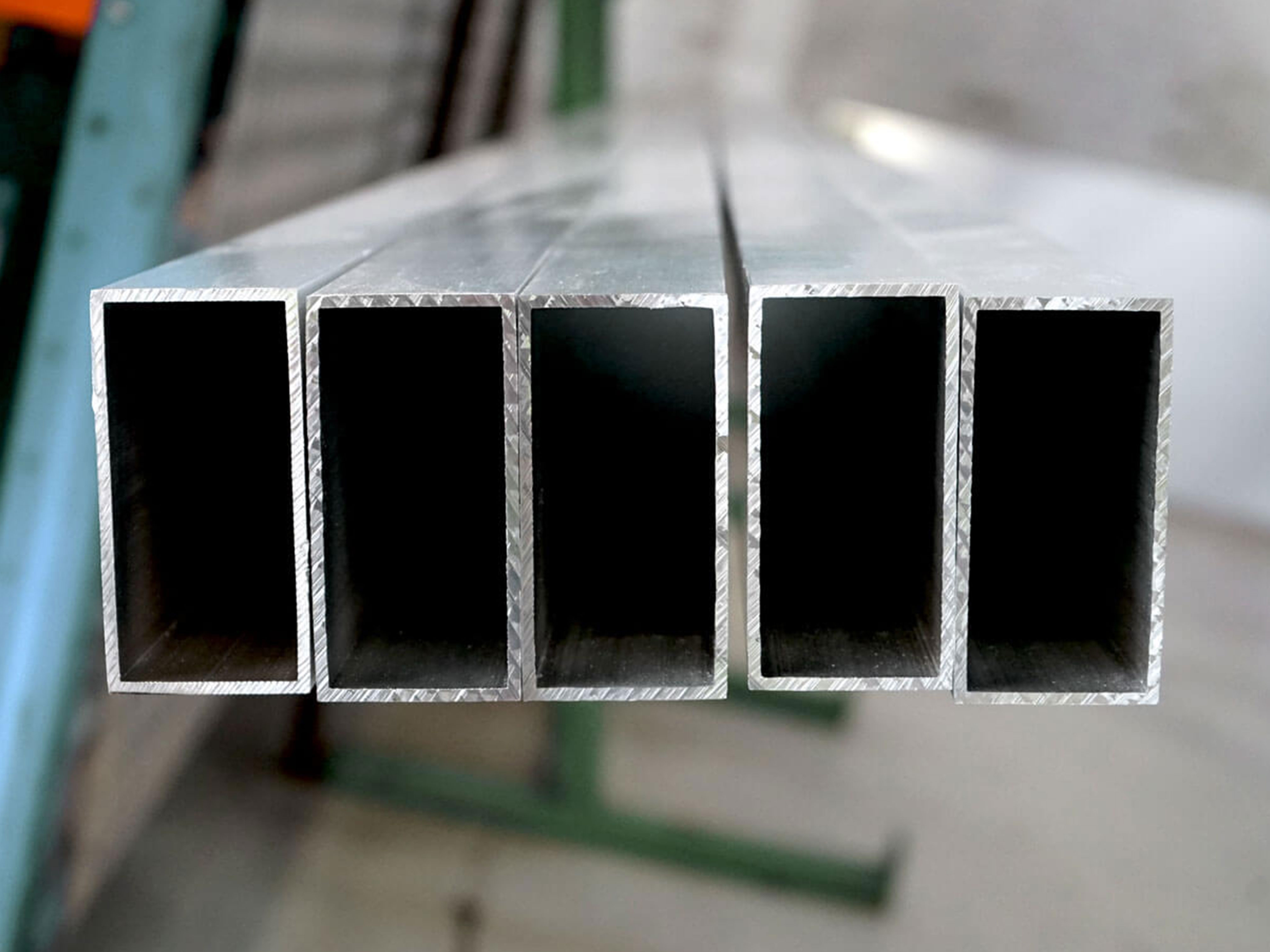
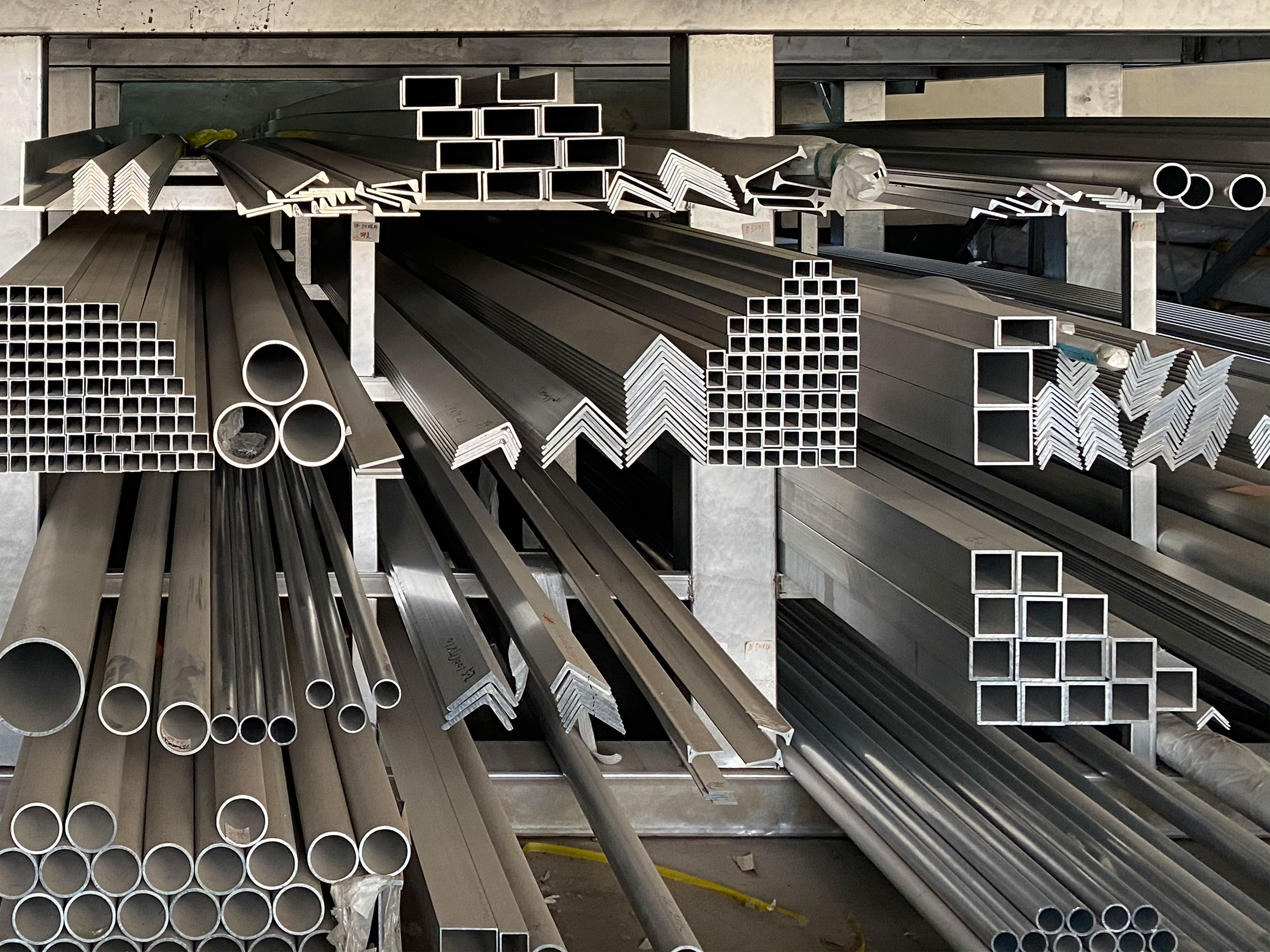
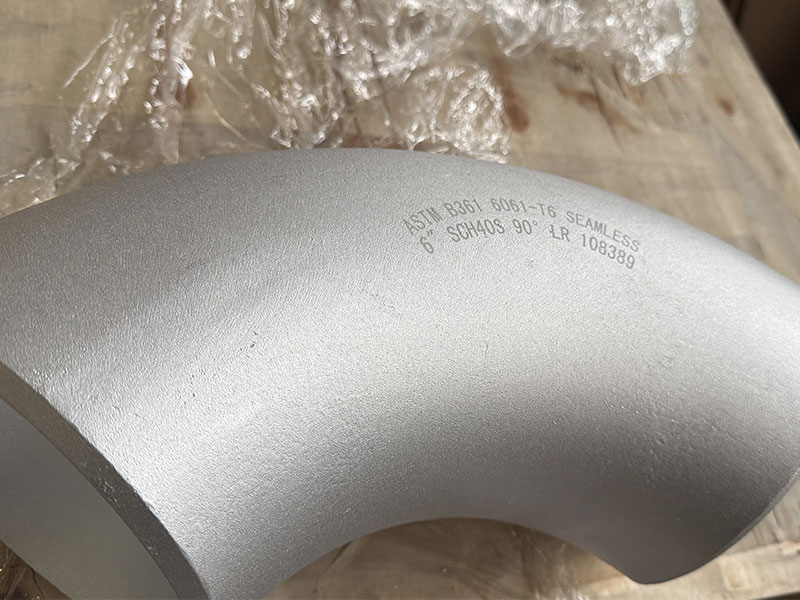
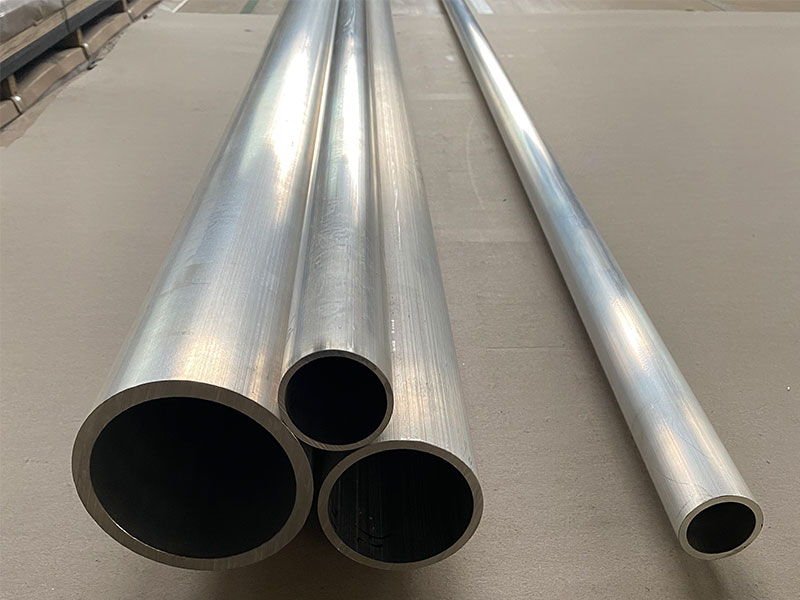
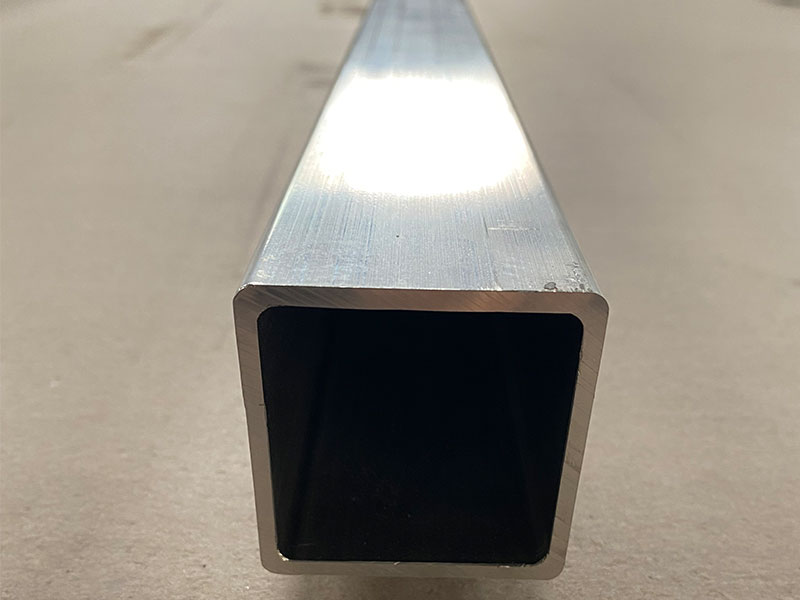







Leave a Message